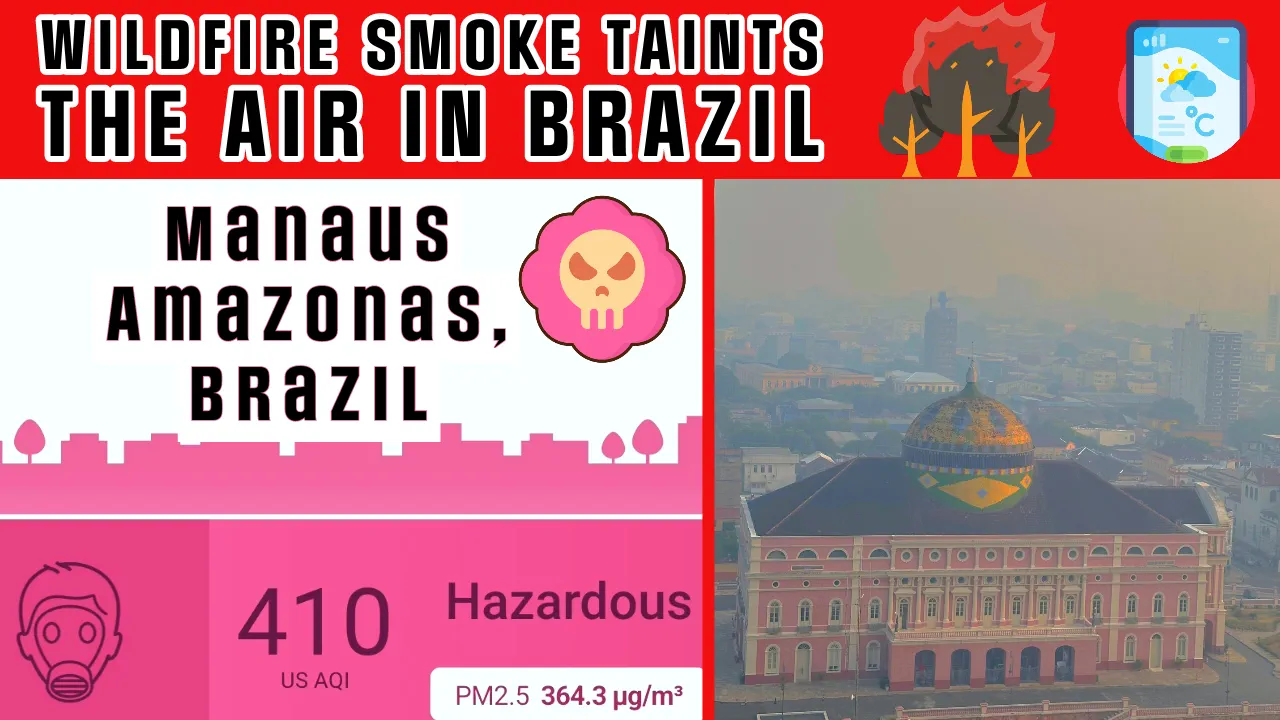
Wildfire Smoke Taints the Air in Brazil
Thick smoke now engulfs the expansive Amazon region as wildfires rage and a severe drought prevails. The city of Manaus, home to 2 million residents, is confronted with some of the world's worst air quality, prompting the suspension of college classes and the cancellation of events, including a global marathon.
During the first 11 days of October, Amazonas state recorded over 2,700 fires, marking the highest number for this month since records began in 1998. These fires are overwhelmingly human-caused, primarily due to deforestation and pasture clearing.
Over the past six weeks, Manaus and other cities in Amazonas have experienced sporadic episodes of dense smoke, making it challenging to breathe.
The air quality index in the city has fluctuated between unhealthy and hazardous levels, resembling the conditions seen in some major Asian metropolises. On a recent Wednesday, major universities in the city canceled all activities, and the international marathon, initially slated for Sunday, was postponed for two months.
Typically, October heralds the onset of the rainy season, but the warming of the northern Atlantic Ocean has disrupted the flow of rain clouds. The impending El Niño, characterized by warming surface waters in the equatorial Pacific Ocean, expected to peak in December, adds to the crisis.
Many major rivers in the Amazon currently register historically low levels, hampering navigation and isolating hundreds of riverine communities.
In Tefe Lake, the combination of elevated temperatures and shallow waters likely contributed to the deaths of numerous river dolphins, primarily the endangered pink dolphins.